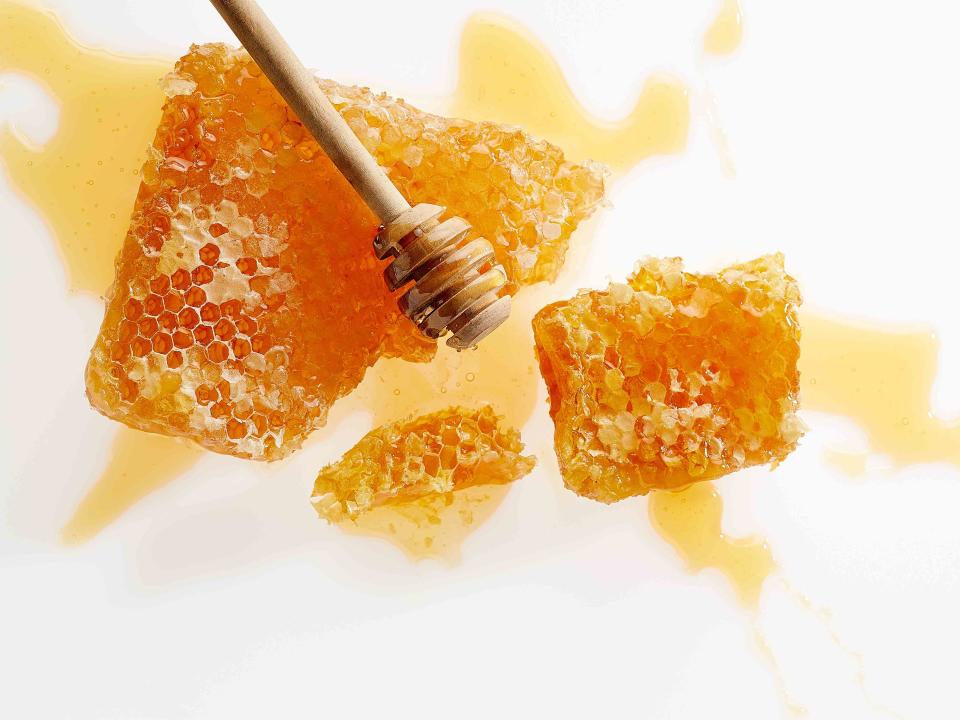Can Eating Local Honey Help Your Allergies?
This seasonal allergy sufferer is seeking answers.

Allrecipes
Spring has sprung! Flowers are blooming, temperatures are warming up, and I have one question on my mind: Are my seasonal allergies getting worse or have they always been this bad?! This time of year, I'm always on the hunt for any relief from the sneezing and itching.
For a few years now, I've heard a theory that eating local honey can help alleviate spring allergy symptoms. But what's the science behind the theory? And is it even true? We investigated.
Does Local Honey Help Allergies?
The science behind this idea is that honey contains pollen from the plants that the honeybees are pollinating. The theory is that eating pollen from local plants (the same ones causing itchy eyes and bouts of sneezing) can help the body build a tolerance to those irritants, desensitizing your body over time and lessening symptoms.
The closer the honey hive is to your home, the better, or so the theories claim. To get the benefits, people purport it's as easy as consuming a tablespoon of locally-sourced honey every day.
So is it true? I'm sad to say, honey is not the answer to your seasonal struggles. Here's why: honeybees collect pollen from brightly colored flowers, not the plants behind your allergies. According to the Asthma and Allergy Foundation of America (AAFA), your seasonal allergies are reactions to trees, weeds, and grasses, not those beautiful blooming flowers. Thus, that spoonful of honey isn't targeting the right problematic pollen.
What's more, some doctors believe that exposing yourself even more directly to pollen by eating it would actually worsen your symptoms, not alleviate them. So if you're in the midst of some particularly terrible allergies, you may actually want to avoid honey.
While it may be the answer to the question, "What's for dinner?," honey is likely not the answer to your allergy season woes. Your best bet is to talk to your doctor about over-the-counter antihistamines or allergy treatments. Save your honey for some sweeter situations.

